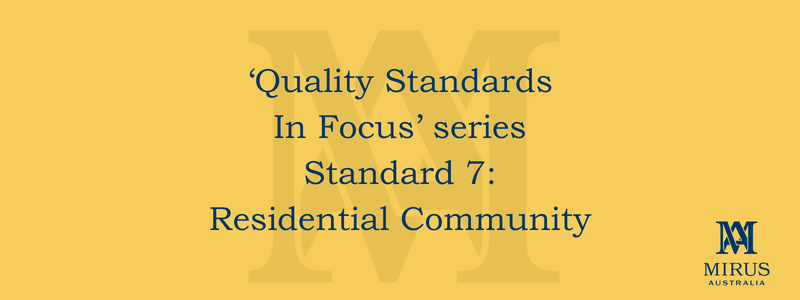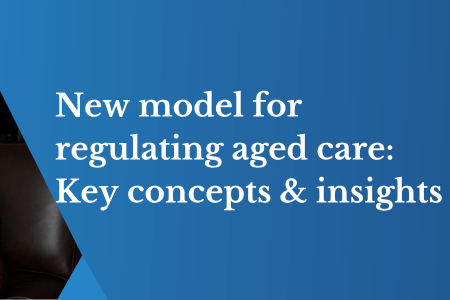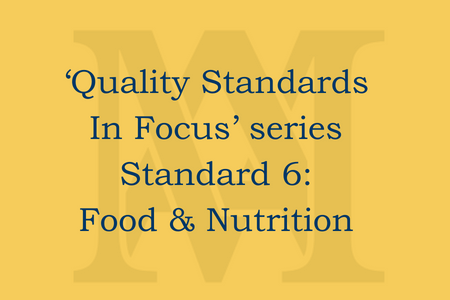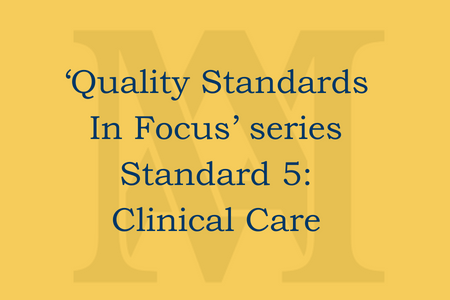The new Aged Care Quality Standards – Standard 7: Residential Community
November 29, 2022 | Quality

By Katie Airey, Quality, Risk and Compliance Lead
As part of the Aged Care reform, the Department of Health and Aged Care (DoHAC) are undertaking a review of the Quality Standards. On the 3rd November 2022 the DoHAC held a focus group to seek feedback on the draft Quality Standards – Standard 7: Residential Community from consumers, aged care providers and workers.
The draft Quality Standards introduce the concept of the residential community to enhance focus on the emotional, social, psychological and spiritual well-being of older people who reside in residential aged care settings.
Standard 7: Residential Community
The draft Standard 7 draws on elements of Standard 3 – Personal and clinical care and Standard 4 – Services and supports for daily living of the current Quality Standards
The intention of Standard 7 – Residential community, is to ensure that when older people move into a residential community, they feel safe and at home. Providers must ensure that each older person is supported to do things such as their preferred hobbies which are meaningful to them. Providers should understand the different cultures and diversities of older people in their care and support each individual so that they feel included and valued within the residential community. Providers will have greater responsibility to ensure older people in their care have access to other services and that care is coordinated and planned for transitions in order to improve continuity of care for each older person.
The Standard retains many of the current concepts including;
- Minimising boredom and loneliness
- Supporting people to contribute to their community
- Protecting psychological safety
- Transitioning people to and from the service
- Connections with specialist dementia care services
And aims to strengthen the focus on the below areas;
Participate in activities that promote their emotional and psychological well-being – The provider must enable older people to do the things that they what and that are important to them. Providers must ensure older people in their care are supported to participate in activities that they choose which promote the emotional, spiritual and psychological well-being of the older person. This includes enabling older people to be involved in activities that would be a normal part of their lives while at home i.e., food preparation, cooking, setting tables, doing laundry, entertaining friends/family and gardening.
Have social and personal relationships – It is important that older people in the residential community feel comfortable to maintain their relationships with those who they choose. Providers must ensure an environment which is free from judgement and enable intermate relationships including where older people choose to engage in sexual activity.
Standard 7 – Overview
Expectation statement for older people
I am supported to do the things I want and to maintain my relationships and connections with my community. I am confident in the continuity of my care and security of my accommodation.
Outcomes Statements:
7.1: Daily living
Older people get the services and supports for daily living that are important for their health and well-being, consider their specific circumstances and enable them to do the things they want to do. Older people feel safe in their service environment.
7.2: Planned transitions
Older people experience a planned and coordinated transition to or from the provider. There is clear responsibility and accountability for an older person’s care and services between workers and across the organisations.
Standard 7 describes additional/increased expectations for residential providers which is in addition to the outcome listed under 3.4 of the draft quality standards.


